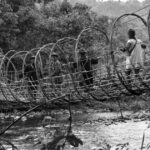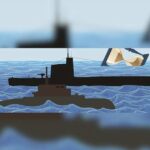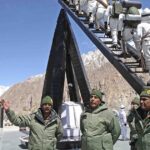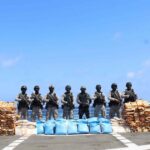SOURCE: WION
Taiwan’s top diplomat in India has said that China continues to “intimidate” it amidst COVID pandemic and “dispatch military aircraft and vessels to circle Taiwan” Speaking exclusively to our Principal Diplomatic Correspondent Sidhant Sibal, Taiwan’s Acting Ambassador Jack CH Chen said,”While countries are focusing on combating pandemic…China has used the opportunity to expand its military presence in the South and East China Seas”. Speaking on India, Taiwan ties, the diplomat expressed his optimism that “through a joint effort following the pandemic, Taiwan and India will become staunch partners in the Indo-Pacific region.” On its WHO membership, Chen said, “We hope that India, as the new Chair of WHO’s Executive Board, will help ensure the WHO Secretariat maintains a professional, neutral stance when considering issues related to Taiwan’s participation”.
WION: China has shown an ambition to change the status quo amidst the COVID-19 pandemic, sending military aircraft and vessels into Taiwan’s airspace and territorial waters. How do you view this situation?
Jack CH Chen: China’s attempts to intimidate Taiwan militarily have never ceased. It continues to dispatch military aircraft and vessels to circle Taiwan and provoke us. China continues to state that it will not abandon the use of force against Taiwan. During the COVID-19 outbreak, the situation has grown more serious, and Chinese military aircraft and vessels have frequently circled Taiwan. In addition, while countries including the United States have been focusing on combating the pandemic, China has used the opportunity to expand its military presence in the South and East China Seas. It has bolstered its deployment on South China Sea islets and continues to dispatch military aircraft and vessels and Coast Guard vessels to the area. These actions have escalated tension in the region. China’s actions are not only detrimental to the positive development of cross-strait relations, they also seriously undermine peace and stability in the Taiwan Strait and the Indo-Pacific region at large.
In consideration of the global pandemic, China should be more transparent; allow for an independent, international investigation; and work more closely with the international community to discern the origins of the virus and what went wrong with disease containment measures so as to better contribute to the global healthcare system.
Taiwan strives to defend such values as democracy and freedom and spares no effort to support regional peace and stability. These efforts have earned high praise from the international community. Taiwan will never succumb to pressure. Rather, we will strive harder to defend our sovereignty, ensure our national interests, and reach out to the international community. We will seek to deepen substantive cooperation with like-minded nations and participate in related international organizations so as to make more concrete contributions to the international community.
WION: Is there a possibility for increased cooperation between Taiwan and India amidst the COVID-19 crisis?
Jack CH Chen: The global pandemic has shown the perils that come with reliance on a single or just a few sources of critical components. In the post-pandemic era, we will likely see a restructuring of the global supply chain. Apart from focusing on capacity building, Taiwan and India should carefully appraise our respective positions in the post-pandemic global supply chain and make plans to forge a partnership. Taiwan and India are natural tradings and industrial partners. Taiwan excels at hardware manufacturing, while India’s prowess lies in software development. India is now enjoying a demographic dividend and it is in an advantageous location with respect to market access in East Asia, Southeast Asia, the Middle East, and Africa. There has long been a great potential for cooperation between India and Taiwan. Responding to the effects of the pandemic, India has doubled down on its Make in India initiative to reform the economy and attract foreign investment. Under this scheme, India has made a major effort to attract Taiwanese businesses. We are glad to see that India is continuing to improve its investment environment, as this benefits Taiwanese businesses looking to expand investment in India. Taiwan and India are both democratic countries and share such values as freedom, democracy, rule of law, and protection of human rights. Over the past few years, our nations have taken great strides toward cooperation in such areas as trade and investment. The pandemic, meanwhile, has helped us identify new areas for further cooperation, including e-commerce, online interaction, and biochemical technology. We hope that through a joint effort following the pandemic, Taiwan and India will become staunch partners in the Indo-Pacific region.
WION: India will now chair WHO’s Executive Board. Does Taiwan have any expectations for India’s new role?
Jack CH Chen: Taiwan sincerely congratulates India on its new role as chair of WHO’s Executive Board. As the most important international organization guiding the development of global public health and defending the right to health, WHO should welcome participation by all stakeholders, including Taiwan. We hope that India, as the new Chair of WHO’s Executive Board, will help ensure the WHO Secretariat maintains a professional, neutral stance when considering issues related to Taiwan’s participation, such as granting Taiwan observer status at the World Health Assembly and including Taiwan in all WHO meetings, mechanisms, and activities. This would help ensure the health and welfare of people in Taiwan and around the world.
WION: Are you confident that Taiwan will one day become a WHO member?
Jack CH Chen: Taiwan did not receive an invitation to the 2020 WHA held in May due to interference from China and WHO’s failure to maintain a professional, impartial stance. Other countries have noticed China’s unreasonable influence on international organizations and have publicly expressed support for Taiwan. There was an overwhelming outpouring of support for Taiwan’s participation in the WHA this year, which shows that the world recognizes the urgency and importance of Taiwan’s participation in WHO. This has been encouraging for Taiwan and we believe that the more international support we obtain, the closer we grow to our goal. Taiwan’s bids to participate in international organizations, including WHO, has always been based on the principles of being professional, pragmatic, and constructive. Our goal at the present time is to be invited to attend the WHA as an observer and to participate fully in WHO meetings, activities, and mechanisms. During the COVID-19 pandemic, the Taiwan Model of successful containment measures has been praised around the world. Once we were able to supply our domestic needs, Taiwan selflessly began donating anti-pandemic medical supplies to more than 80 countries. We have shown the world that Taiwan can help, and Taiwan is helping.
WION: Do you think that China mishandled the COVID-19 crisis?
Jack CH Chen: China covered up and delayed notifying the world of the SARS outbreak in 2003. When the COVID-19 outbreak erupted in Wuhan in December 2019, other countries remained unaware of the situation. Even within China, information was not shared in a transparent manner. As a result, countries around the world were unable to respond quickly during the critical beginning stage of the outbreak. The golden opportunity to contain the outbreak was lost and it grew into a global pandemic. This highlights the terrible consequences of China’s lack of transparency.At the end of December 2019, Taiwan began noting information about related cases being shared on the internet and immediately realized the seriousness of the situation. Our officials notified WHO’s IHR focal point on December 31, asking them to pay special attention to the fact that patients with symptoms of atypical pneumonia had been isolated for treatment in Wuhan City. If China and WHO had responded quickly and alerted governments around the world to the situation, the outbreak could have been contained and the effect on humankind would have been significantly reduced. As a result of China’s mishandling of the outbreak, other countries have lost faith in China and have remained on alert. At the same time, the world sees Taiwan as a force for good even more than previously. We alerted WHO immediately after discovering a questionable situation, and have handled the outbreak in Taiwan transparently, showing that democratic countries are able to combat the virus in an open, honest, and transparent manner.






